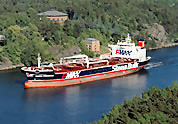 On Tuesday, the Office of Foreign Assets Control (“OFAC”) revised the FAQs on its website to address a problem in interpreting guidance it issued last February on transactions with a company in which a Specially Designated National (“SDN”) had an interest That guidance stated:
On Tuesday, the Office of Foreign Assets Control (“OFAC”) revised the FAQs on its website to address a problem in interpreting guidance it issued last February on transactions with a company in which a Specially Designated National (“SDN”) had an interest That guidance stated:
A person whose property and interests in property are blocked pursuant to an Executive order or regulations administered by OFAC (a “blocked person”) is considered to have an interest in all property and interests in property of an entity in which it owns, directly or indirectly, a 50% or greater interest. The property and interests in property of such an entity are blocked regardless of whether the entity itself is listed in the annex to an Executive order or otherwise placed on OFAC’s list of Specially Designated Nationals (“SDNs”).
That guidance raised, but didn’t answer, what sort of, and degree of, due diligence was required to ferret out ownership interests by SDNs.
The new FAQ responds to a question posed by a bank with respect to wire transactions in which it was a correspondent bank and had no relationship with the sending or receiving account holders:
OFAC would not expect the bank to research the non-account parties listed in the wire transfer that do not appear on the SDN List and, accordingly, would not pursue an enforcement action against the bank for having processed such a transaction.
If a bank handling a wire transfer currently has information in its possession leading the bank to know or have reason to know that a particular individual or entity involved with or referenced in the wire transfer is subject to blocking, then the bank will be held responsible if it does not take appropriate steps to ensure that the wire transfer is blocked.
But even if the correspondent bank isn’t required to conduct due diligence on the parties to the wire transfer, OFAC reiterated that banks are required to conduct due diligence on their own account holders to determine whether an SDN has a direct or indirect 50 percent interest in the account holder:
OFAC expects banks to conduct due diligence on their own direct customers (including, for example, their ownership structure) to confirm that those customers are not persons whose property and interests in property are blocked.
This due diligence is more complicated than it seems a first glance given the way OFAC phrased the restriction. If an SDN “owns, directly or indirectly, a 50% or greater interest” in another entity, that entity is blocked. At first glance it might seem that the due diligence obligation could be fulfilled by asking an account holder to supply a list of all entities with a 50% of greater interest.
But consider a few examples. Suppose the SDN owns a 50% interest in a company that owns 100 percent of the account holder. That would seem to be covered by the OFAC guidance, and would require an inquiry well beyond the shareholders of the account entity, but also the shareholders of the shareholders, and on and on up the tree until all individual shareholders are found. Now consider a case where an entity that owns 51 percent of the account holder is itself 51 percent owned by an SDN. Although the SDN controls the account holder it only owns an indirect 26 percent interest in the account holder and appears not to be covered by the guidance. Let’s complicate things further and consider a case where the account holder has a 40 percent shareholder in which the SDN has a 100 percent interest and a 60 percent shareholder in which the same SDN has a 40 percent interest. In that situation the SDN has a 64 percent indirect interest in the account holder and requires blocking the account holder even though the SDN wouldn’t have control over the account holder.
The bottom line is that although the rule in the OFAC guidance appears simple, it actually imposes complicated due diligence requirements and also potentially captures situations where the SDN has no control over the account holder.

 Posted by
Posted by  Category:
Category: 

 While looking for background on the recent
While looking for background on the recent  According to a
According to a  Yesterday the Office of Foreign Assets Control (“OFAC”) released its civil penalties
Yesterday the Office of Foreign Assets Control (“OFAC”) released its civil penalties  On January 22, the Bureau of Industry and Security (“BIS”) issued a
On January 22, the Bureau of Industry and Security (“BIS”) issued a 

